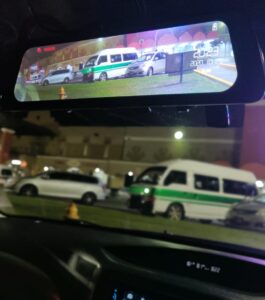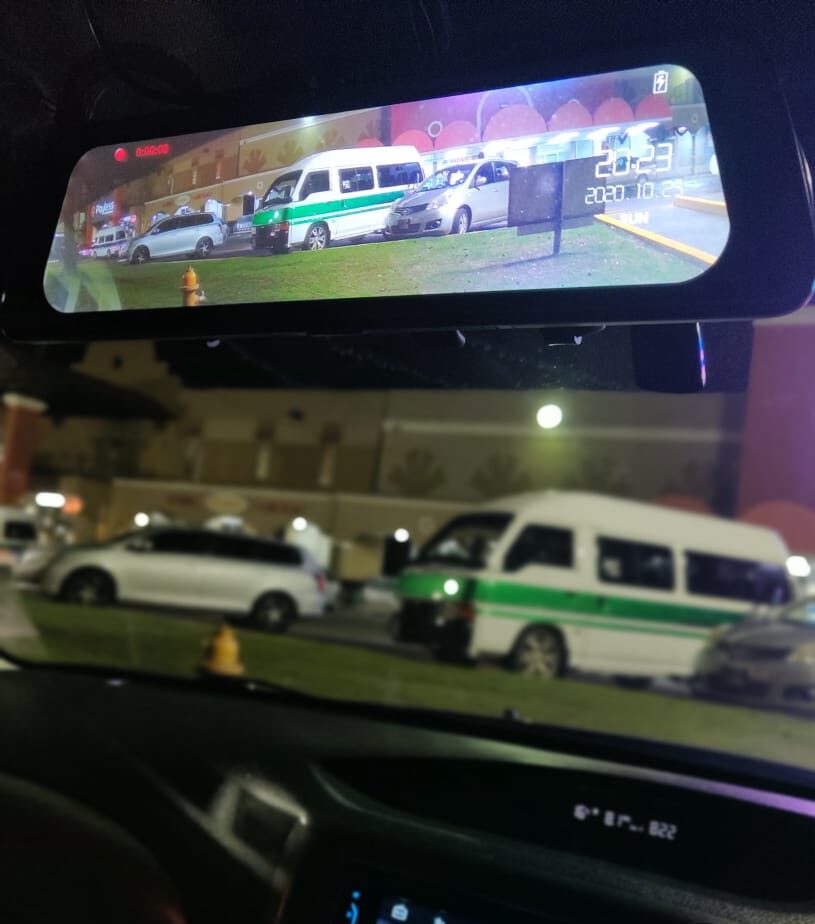
DRIVING home last Friday evening was a chore.
Standstill traffic.
I was forced to make a detour that doubled my driving time. It was a long week. I was tired and felt irritated. The next day, a video began making the rounds on social media showing the reason for the traffic … a reckless driver that collided into another vehicle causing a massive traffic pile up.
All caught on tape – a dashcam.
I’ve been using dashcams in my car for years. While it’s a proven asset in more developed countries, it’s only now becoming known and popular in this country.
In case you’re not familiar with the term, a dashcam is an abbreviation of “dashboard camera.” It’s a small video camera that’s mounted on the dashboard or windscreen of a motor vehicle and used to continuously record the view through the windscreen.

While there are pricey versions, they are relatively inexpensive and a good unit can be bought for around TT$500.
Many additional features are available depending on the brand and model you buy, for example, cameras to the front and rear of the vehicle, built in GPS tracking, and the ability to wirelessly download recorded footage.

The dash cam itself is pretty small and compact. The resolution on some of these dashcams are incredible, particularly in the night! All footage is stored in an SD card inserted in the dash cam.
It’s programmed to record sound and videos in loops or segments. After the capacity of your SD card is exceeded, it overwrites the oldest videos, so in effect recording never comes to an end.
They also have a cool feature where in the event of an impact, something called G sensors kick in, turning on the dashcam even if off, and a video recording is made that can only be manually deleted. That feature was surely designed to effectively capture moments of collisions.
Are dashcams legal in Trinidad and Tobago? From my research, we have no laws in this country specifically governing dashcams. If it’s not illegal, it is legal. So, my answer is yes.
Of what real use is a dashcam? For me, it’s the same as having CCTV cameras mounted to your homes or business place. If something happens, don’t you want to have independent video footage? Dashcam recordings can be used to prove negligent driving. The footage could be sent to the respective insurance companies to work out a settlement, out of court.
If the matter were to reach to court to determine if there was negligent driving, our laws do allow video recordings to be used as evidence. Admissibility of evidence to be used in court is a tricky matter, too complex to go into in this article, but the makers of dashcam footages are usually needed to admit the videos, which may sometimes mean appearing as a witness in court in order to authenticate the video recording.
The beauty of dashcams recordings is that they eliminate the doubt inherent with eye witness only evidence. People lie, twist the truth and miscomprehend what they see at times. Untampered video recordings do not. They are capable of portraying blame exactly where they should lie. I wouldn’t be surprised if the settlement rates rise rapidly with insurance companies as the use of dashcams become more widespread here.
There is a certainly comfort in knowing that if anything happens while you’re driving, you’ll be able to catch it on camera. I can speak from personal experience that having a dashcam recording in my vehicle was most likely instrumental in getting an insurance company (colloquially known as a “bounce and loss” insurance company because they have a bad reputation for not settling claims) to accept 100% responsibility after an errant female collided into my vehicle, then lied about how it happened.

T&T drivers are notoriously bad drivers, in the sense that we get “bad drives” more often than we see potholes in the road. I foresee that the usefulness of dashcams will make them hugely popular in this country, and soon legislation may be warranted to deal with privacy concerns, allow them to be used by the police to prosecute reckless drivers etc. Have you jumped on the dash cam bandwagon yet? If not, you may want to consider it. Be safe Trinidad and Tobago.
Copyright © 2020 Neela Ramsundar, LL.B (HONS), L.E.C is a Civil Litigation Attorney at Law & Certified Mediator.
Disclaimer: The contents of this article are for general informative purposes only. It does not provide legal advice and does not create an attorney-client relationship with any reader. For legal advice on your specific situation, please contact an Attorney-at-Law of your choosing directly. Liability for any loss or damage of any kind whatsoever allegedly incurred a consequence of using content in this article is thus hereby excluded to the fullest extent permitted by law.
![]()












